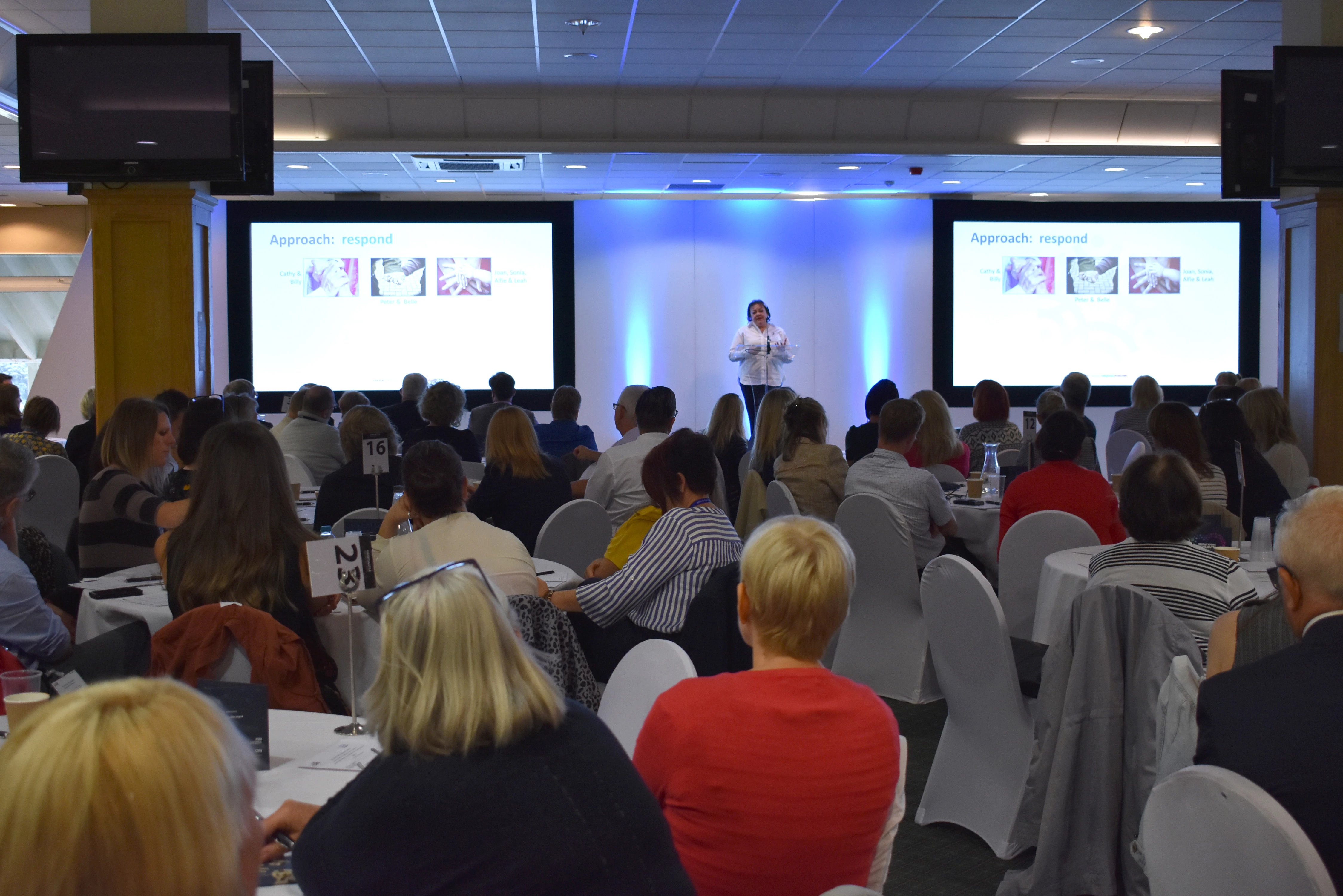
Partner Article
NHS England chief executive praises regional approach to supporting older people
The region’s innovative approach to addressing the challenges posed by an ageing population was heralded as a driving forcing for change at a recent event.
‘I-Care about Frailty: A Regional Approach’ attracted key national health figures to the region including Simon Stevens, NHS England’s chief executive, and Dr Dawn Moody, also from NHS England, alongside a host of regional health trailblazers.
The event, held at Newcastle Racecourse last week, centred on the importance of regional health communities working together to develop a holistic approach to preventing frailty and supporting those living with frailty.
The population of people aged 65 years and over in the North East, North Cumbria, Richmondshire, Hambleton and Whitby is currently 616,445i, of these there are 34,905ii people living with moderate and severe frailty. Over the next 20 years, these figures are expected to rise.
Health professionals across the North East, North Cumbria, Richmondshire, Hambleton and Whitby are working to address this upward trend by developing the Frailty I-Care toolkit, an initiative led by the Care Closer to Home programme and the Academic Health Science Network for the North East and North Cumbria.
The online toolkit, which is being continually updated, incorporates evidence-based approaches to care across the frailty journey, key resources and local examples of good practice.
Almost 200 people from across the healthcare community, including commissioning and provider organisations, health and care professionals, the voluntary sector and academics, attended the I-Care about Frailty event to explore the toolkit, learn how they can contribute to it and plan how to apply it in their own practice and local area to support the people they serve.
NHS England’s Simon Stevens spoke at the event and answered questions from the audience.
Speaking after the event, he said: “There is a rich history of innovation in this region and it’s great to see the practical and innovative approach being taken here to address the opportunities and challenges that come with an ageing population.”
Lesley Bainbridge, Clinical Lead for the Care Closer to Home, is part of the dedicated team that has been driving the development of the Frailty I-Care toolkit.
She said: “Defining frailty can be a difficult thing, many assume that ageing and frailty go hand-in-hand, but that doesn’t have to be the case. Frailty can present itself in many different people, who access different health services for different reasons.
“We want all workstreams to understand what we are trying to achieve with frailty. This is why the toolkit was created, to allow health professionals across all levels and all service areas to have access to key information on the frailty care pathway so they can put it to use in their day-to-day working practice.
“The ultimate aim is to create better lives for people living with frailty and those supporting those with frailty. To achieve this, we need to speak the same language as the people who are receiving the services, we have to understand them and their needs, so we can develop a system that works for them. To do this, we all need to be working together to share ideas and best practice.”
Dr Dawn Moody, Associate National Clinical Director for Older People and Integrated Person-Centred Care at NHS England, travelled to the region to paint a picture of the national approach to frailty and also launched the Frailty Capability Toolkit, a national workforce development tool.
She said: “Given the ageing population, it’s vitally important that we identify how we can best meet the needs of those living with frailty to ensure we’re providing the right care, at the right time.
“A person living with frailty crosses all health service areas – acute, primary, mental health, social care. If we can engage with health professionals across all these areas, draw on their expertise and share experiences, we will be in a much better position to identify those most in need and to deliver the best care possible.”
Other key themes discussed at the event included data sharing, digital technology and workforce development.
This was posted in Bdaily's Members' News section by RLPR .
Enjoy the read? Get Bdaily delivered.
Sign up to receive our daily bulletin, sent to your inbox, for free.








 Raising the bar to boost North East growth
Raising the bar to boost North East growth
 Navigating the messy middle of business growth
Navigating the messy middle of business growth
 We must make it easier to hire young people
We must make it easier to hire young people
 Why community-based care is key to NHS' future
Why community-based care is key to NHS' future
 Culture, confidence and creativity in the North East
Culture, confidence and creativity in the North East
 Putting in the groundwork to boost skills
Putting in the groundwork to boost skills
 £100,000 milestone drives forward STEM work
£100,000 milestone drives forward STEM work
 Restoring confidence for the economic road ahead
Restoring confidence for the economic road ahead
 Ready to scale? Buy-and-build offers opportunity
Ready to scale? Buy-and-build offers opportunity
 When will our regional economy grow?
When will our regional economy grow?
 Creating a thriving North East construction sector
Creating a thriving North East construction sector
 Why investors are still backing the North East
Why investors are still backing the North East